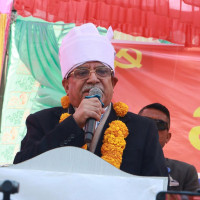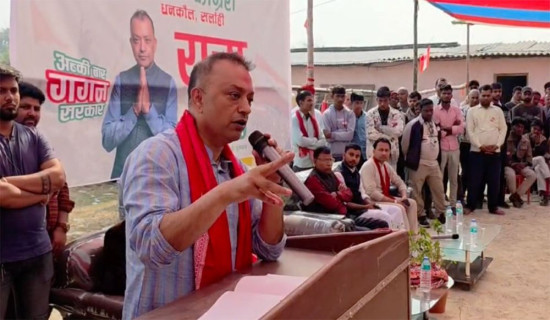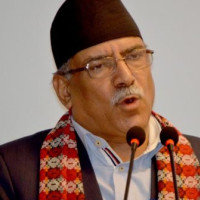- Saturday, 14 February 2026
Are Great Teachers Born Or Made?
The query "whether great teachers are born or made" has long been a topic of discussion in academia. Despite extensive debate, a conclusive answer remains elusive. No doubt, the education sector needs significant investment, making it one of the most substantial portions of any nation’s budget. The ultimate result of investing the largest share of the public budget in education is essentially to produce skilled human resources that can contribute to the national development process. However, there are a few intermediary results that also consume a large portion of such investment, such as infrastructure development, the creation of employment, and improving the learning environment. At the end of the day, if this investment does not trigger students' learning, the first question is pointed out as to the teacher's quality and capacity.
We already know that for improving students' learning, several factors are responsible. These factors are mobilised by using the available resources and budget. Of these inputs, teachers are taken as the critical and most influential factors in the education system, mostly responsible for students’ learning. However, rather than a teacher as an individual, their capacity matters the most in students' learning. Such capacity includes both intrinsic and extrinsic capacity, which are the components of the teacher development framework. Intrinsic capacity sometimes also includes in-born abilities, including their physical and mental abilities. Extrinsic ability includes external motivation that attracts individuals to perform better.
Teacher, in this article, refers to all teaching staff working in the education system, ranging from pre-primary to university level, including facilitators and instructors. Although the terms and conditions in which teachers work, their benefit package, working environment, entry requirements, and training and development opportunities may differ by levels of education, they all require that they possess adequate capacity to perform effectively in the classroom.
When it comes to developing teachers' capacity, different terminologies are commonly used, such as teacher training, teacher competency, teacher performance, teacher development, teachers' capacity, etc. These terminologies are often used interchangeably for preparing teachers.
Current issues
Recent statistics reveal that the learning achievement of students at all levels of education is only about 50 per cent or even below that. Who is responsible for this? Are the teachers alone responsible for this low performance of the students?
In recent years, enrollment in technical and vocational education and training (TVET) schools has been decreasing. Most of the TVET schools do not have the required number of students to use the available quota. It is evident that some of the TVET schools have been closed by the school authorities because of the unavailability and unwillingness of students to participate in the programmes.
The outflow of Nepali students abroad to study higher education has sharply increased in recent years. Is there any correlation between the low achievement of students and students moving abroad? Is there any relation between teachers' capacity and students' outflow? Several factors could be responsible for producing such a situation in the education system. However, the main concern in this article is to discuss to what extent a teacher is accountable for this.
The quality of education, in general, depends on the quality of teachers. However, it is also noteworthy to accept that teachers are not the sole factor. There are other variables that directly and indirectly contribute to the quality of education. A teacher's quality includes both in-born quality and attractions that are extrinsically motivated. Building the capacity and competency of working teachers are both intrinsic and extrinsic in nature and therefore require internal commitment and external input. In Nepal, however, a compartmentalised approach is used to develop the capacity of teachers, addressing one component of the capacity needs at a time.
Along with the capacity of the teachers, another weakness of the education system is the weak accountability mechanism. Making teachers accountable is an equally important element of capacity building, which is essentially the missing link in almost all capacity building programmes. Being accountable for their performance must remain a core trait in all capacity-building activities.
Way forward
While talking about teachers' qualities, the philosophies of being teachers must be kept at the heart of the discussion. Bartlett (2023) highlights the importance of 'the personal philosophy' to predict how anyone will behave now and in the future. Therefore, personal values, beliefs, and principles that guide the behaviour of an individual have a great influence in the teaching profession.
So, we should have a serious discourse on ‘Are good teachers born or made’? If we believe good teachers are born, we need to think about the teacher recruitment process, criteria, and system to recognise the innate ability in teachers and to keep them motivated and recharged to perform well. On the other hand, if we believe good teachers can be made, we can identify relevant inputs and processes for teacher development.
As part of the teacher development programme, universities offer various pre-service training courses. However, the pre-service courses alone have proved ineffective in enhancing teacher capacity. So, a holistic perspective is required to develop teachers' capacity by blending pre-service, in-service, and the enabling environment together for improved teacher capacity.
Teachers' capacity development is not an independent or isolated activity. Rather, it should be considered an integral part of the quality of education. The introduction of the concept of quality assurance should be employed at all stages of quality education-related intervention. Otherwise, the ongoing blame game will persist, as is openly evident these days.
Capacity building is not a one-shot exercise. Therefore, all teachers must receive refresher courses in certain areas at a predetermined interval; this may include plan preparation, updates on curriculum and pedagogy, exploring research studies, using ICT in teaching, learning, pedagogy, and so on.
Refresher training for all teachers in face-to-face mode in a short period of time may require huge financial and human resources and will also demand better planning and preparation. The alternative modality could be the use of a virtual modality, where a large number of teachers can be oriented or trained in a short period of time.
For using virtual platforms, we should plan on how to use available resources and include as many teachers as possible. To develop the capacity of teachers through this mode, partnerships with regional and locally based universities or colleges, including private providers, would be cost-effective.
Likewise, university teachers can be updated by engaging them in research work and studies and by making them an integral part of the teaching profession in universities. For this, we need a policy where all teachers working in universities must carry out at least one research study on teaching and learning every year.
Self-motivation is required to convert a teacher from a jobholder to a self-passionate professional. Encouraging self-study, engaging in meditation, counselling, or exposure visits could be useful in this regard. We must acknowledge that every teacher has two lives: the first is a job holder, and the second is a guru. In many cases, teachers have not been able to transform themselves from jobholders to gurus. This transformation requires meditation, dedication, and developing passion.
Developing and enforcing accountability mechanisms can also work to develop the capacity of teachers, which will have a direct impact on students' learning.
As mentioned earlier, several factors are responsible for producing competent teachers and making them accountable for teaching and learning.
No matter what we believe in, the main drivers of effective teaching and learning in schools are the teachers. Therefore, teachers' performance and commitment are considered pre-requisites for successful and effective teaching and learning. Teacher capacity development is not a one-time activity, it is globally accepted as a planned and continuous effort.
(The author is Principal Secretary of Sudurpaschim Province.)















